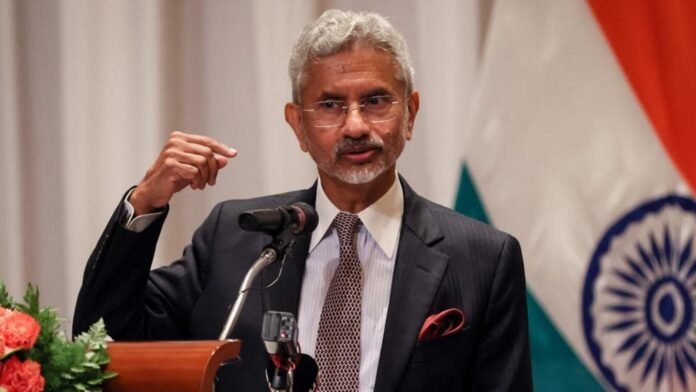Recently, Indian External Affairs Minister S Jaishankar delivered a poignant warning to Canada, invoking ‘Newton’s law of politics’ while calling out the issuance of ‘gangland’ visas. This statement, laden with symbolism and substance, underscores the complexities of diplomatic discourse and the underlying tensions between nations.
Jaishankar’s reference to ‘Newton’s law of politics’ serves as a metaphorical reminder of the consequences of actions and reactions in the realm of international relations. Much like Newton’s third law of motion, which states that every action has an equal and opposite reaction, diplomatic decisions and policies can have far-reaching repercussions, shaping the dynamics between nations.
The specific context of Jaishankar’s warning revolves around the issuance of visas by Canada, particularly in cases involving individuals with alleged ties to organized crime or terrorist activities. By highlighting the issuance of ‘gangland’ visas, Jaishankar draws attention to a sensitive issue that has strained bilateral relations between India and Canada in recent years.
The issuance of visas to individuals with dubious backgrounds has been a point of contention between the two countries, with India expressing concerns about Canada’s lenient approach towards granting visas to individuals involved in criminal or terrorist activities. This has led to frictions and diplomatic tensions, as India seeks cooperation from its international partners in combating transnational crime and terrorism.
Jaishankar’s warning serves as a diplomatic rebuke to Canada, urging the country to reconsider its visa policies and take proactive measures to address India’s concerns regarding the issuance of visas to individuals with questionable backgrounds. By invoking ‘Newton’s law of politics,’ Jaishankar emphasizes the principle of reciprocity in diplomatic relations, implying that India’s response to Canada’s actions will be commensurate with the gravity of the situation.
The use of metaphor and analogy in diplomatic discourse is not uncommon, as diplomats often employ rhetorical devices to convey subtle messages and convey diplomatic intent. Jaishankar’s invocation of ‘Newton’s law of politics’ serves as a diplomatic tool, signaling India’s firm stance on the issue of ‘gangland’ visas while leaving room for dialogue and negotiation.
Moreover, Jaishankar’s warning underscores the importance of bilateral cooperation and mutual respect in diplomatic relations. In an increasingly interconnected world, nations must work together to address shared challenges and uphold common values. By calling out the issuance of ‘gangland’ visas, Jaishankar seeks to hold Canada accountable for its actions and encourage greater transparency and accountability in visa processing procedures.
The diplomatic exchange between India and Canada highlights the complexities of modern diplomacy, where issues of security, sovereignty, and human rights intersect. While both countries share a commitment to democratic principles and the rule of law, differences in policy and approach can sometimes lead to tensions and misunderstandings.
Moving forward, it is imperative for India and Canada to engage in constructive dialogue and cooperation to address mutual concerns and build trust and confidence in their bilateral relationship. By fostering greater transparency and cooperation in visa processing and law enforcement efforts, both countries can strengthen their partnership and contribute to global efforts to combat transnational crime and terrorism.
In addition, S Jaishankar’s ‘Newton’s law of politics’ warning to Canada underscores the intricacies of diplomatic discourse and the underlying tensions between nations. By invoking metaphor and analogy, Jaishankar conveys India’s concerns regarding the issuance of ‘gangland’ visas while emphasizing the principle of reciprocity in diplomatic relations. As India and Canada navigate their bilateral relationship, it is essential for both countries to engage in open and transparent dialogue to address mutual concerns and strengthen their partnership in the face of shared challenges.

